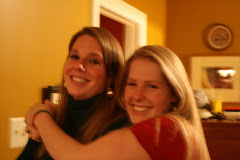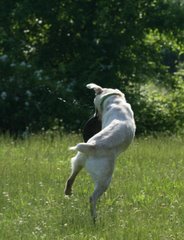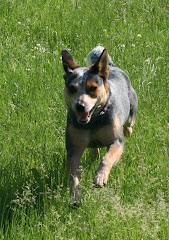These musings were from Paul's first trip to China:
Spitting
Spitting in public is relatively common among men as is hacking up phlegm. Some aim for drains and sewer inlets while others simply hurl onto the sidewalk. I am reminded that Nanny’s original suitor died of the Spanish influenza pandemic of 1918-1919. Old pictures from those years show posted signs on city sidewalks urging the public not to spit. I assume spitting in public was rather common practice in those days. Maybe the Spanish flu broke American men of this habit. The spitting in Beijing is less than rampant but common enough to be noticed as customary.
Umbrellas
Many, many women use umbrellas for shade. One friendly young lady greeted me on one of my walks (see “Friendly” below) and we struck up a conversation. I asked her about her umbrella. She told me she was aware those American women prefer to be bronzed by the sun but Chinese women, especially young women, avoiding the sun to prevent freckles. For them, I guess, a clean and alabaster complexion is deemed more beautiful than shaded skin tones.
Friendly or Stalking
In Beijing, my features and height set me apart from the maddening crowd (a phrase I fully grasp now that I have been to Beijing). I might as well have “Foreigner” tattooed on my forehead. I am often approached and drawn into conversation. The string of questions is remarkably the same (must be part on Mao’s Red Book). “Where are you from?” “Is this your first time in Beijing?” How do you like it here?” “Are you here on business or vacation?” “What type of work do you do?” At times I concluded that the Chinese are beguiled by outsiders and crave information of the world outside of Beijing and China. I sense that there interest is sincere, non-predatory and naïve. Other times I worry that I am being drawn into an ominous situation. I am prey; ripe for exploitation by would be profiteers. So far these encounters have all ended well (though I did make a hasty retreat on one occasion when I sensed the other party’s interest in me was becoming overly insistent. It’s a shame. I’d prefer to plunge into these encounters without fear that the seemingly friendly Chinese possess nefarious intentions.
Traffic and Driving
Beijing is a crowded city with lots of cars. Merging and lane changes are performance art. All drivers seem to vibrate to the same rhythm and pulse. A driver merging or changing lanes simply “feels the force” and executes the maneuver by pressing into a space already occupied by the adjacent car. Somehow, for an instant, the laws of physics are broken and two objects are permitted to occupy the same space at the same time. In a blink of an eye the maneuver is completed and, incredibly, no one is honking, cursing, pulling a gun or otherwise exhibiting signs of road rage. The same maneuver in Philadelphia would result in somebody’s death. In Beijing Bottle necks in the USA could be passed-through much more quickly if American drivers could master this level of driving ballet and cool compromise. To adapt a line form “Encounters of the Third Kind,” “They’re miles ahead of us in highway technology.” it happens hundreds of times every quarter mile.
Dirt and Pollution
The air is thick with particles of indeterminate origins. Unwashed cars accumulate a thick coating of powder and grit. New buildings of glass and chrome are dimmed by the ever encroaching sheets of grime. I’ve heard that periodic sand storms sweep through the city. In the winter, I am told, coal is the chief source of heat and homes in the Hutongs (old residential areas) buy coal from vendors wheeling small carts through the neighborhood. Thousands of small stoves burning raw coal for heat – the soot must be dense.
Speaking of Dirty Cars
On one back street I noticed a line of cars along the curb each being wash by a brigade of bucketeers with sponges and towels. This is Beijing’s automated car wash. Drive up to the curb and let the bucket brigade do their thing. Exit with a clean car.
Labor and Machinery
The balance is skewed heavily in favor of labor; even when constructing modern office towers. Cranes and heavy equipment are on site but much of the work relies on sweet and brawn. Earth is often moved by handcarts and the continuous comings and goings are reminiscent of a bucket brigade dousing flames over 100 years ago. I witnessed new sewer pipe being laid and there was no backhoe in site. Shovels and carts made trenches and displaced earth. The most advanced piece of technology on the site was a lever. But don’t be fooled, these are industrious and inspired people. Westerns might scoff at the process, but the results are changing the face of China.
Service with a Smile
There is no tipping in China but you would never guess it by watching the servers in restaurants and elsewhere. In fact, the service can be too insistent. Servers hover and wait for a plate to be emptied, then rush in and scope it away. In stores and markets salespeople are impatient and pounce on browsers. You’d better know what you want else the store personnel will start showing you what they think you should buy. At a mobile phone store I asked for a SIM card so that my cellular phone would work in China. I was immediately taken to the back of the store and seated at a table. A cup of cold water was presented as a book of available phone numbers was presented. The care and attention I was given was almost embarrassing. Services in most jewelry stores in the USA would only managed a close second if matched to SIM card service in Beijing.
Numbers and SIM cards
Numbers hold special significance in China. This significance has an interesting impact on cell phone numbers. Some phone numbers are good – full of lucky or prosperous digits. Other numbers are unwanted and full of unlucky and dooming digits. The price of cell phone numbers varies accordingly. Where I purchased my SIM card, good numbers were being sold for up to RMB 660 (US$ 100). Less desirable numbers sold for about RMB 120 (US$ 18). I purchased an unlucky, err... cheap..., number.
Safety
I not yet felt unsafe in my wanderings through Beijing. Even the narrow, twisting and maze-like alleys of the Hutong I explored did not set off any safety alarms for me.
Volatility
The people are generally placid and quiet. Moving about life they appear hard to rile and upset. But, seemingly innocuous events and exchanges can suddenly set tempers afire. Loud arguments erupt. Shouting in Chinese has a decidedly ugly and acidic tone. These bouts might involve two passersby on the street and two coworkers. In a retail store, a coworker encroaching on another’s transaction will likely receive a quick and loud rebuke even when the interloper appears to be attempting to help. The Chinese all seem to share a deeply-seated strong stubborn and independent streak. When presented with a problem or unexpected turn they will shun assistance as they try to resolve the issue unaided.





1 comment:
what a great writer Paul is! I really enjoyed reading about his adventures - thank you!
Post a Comment